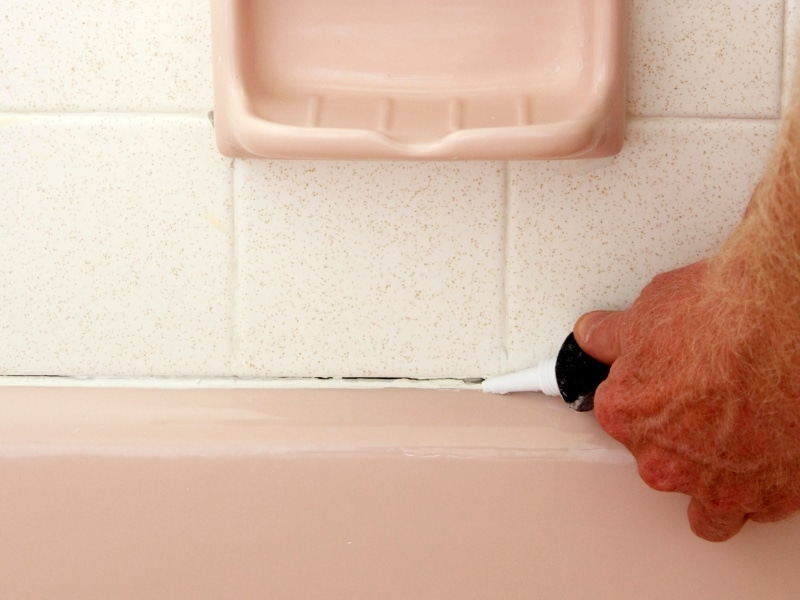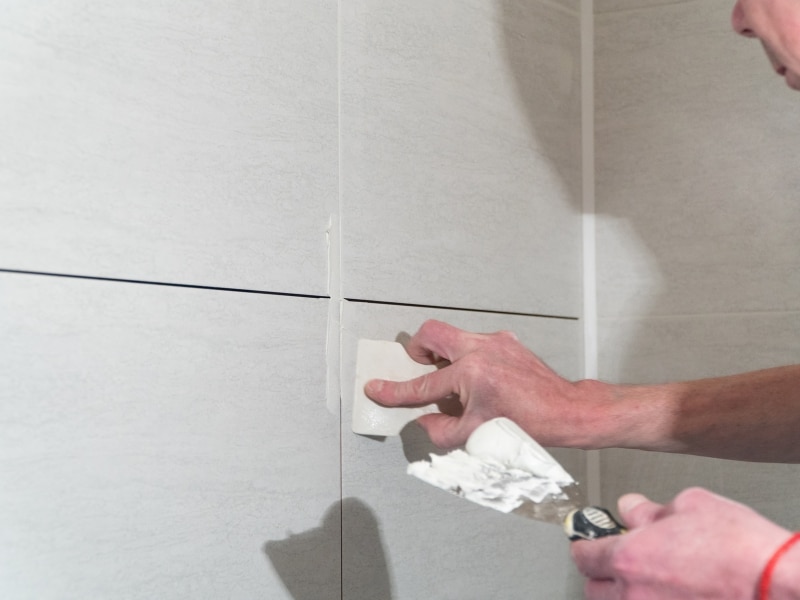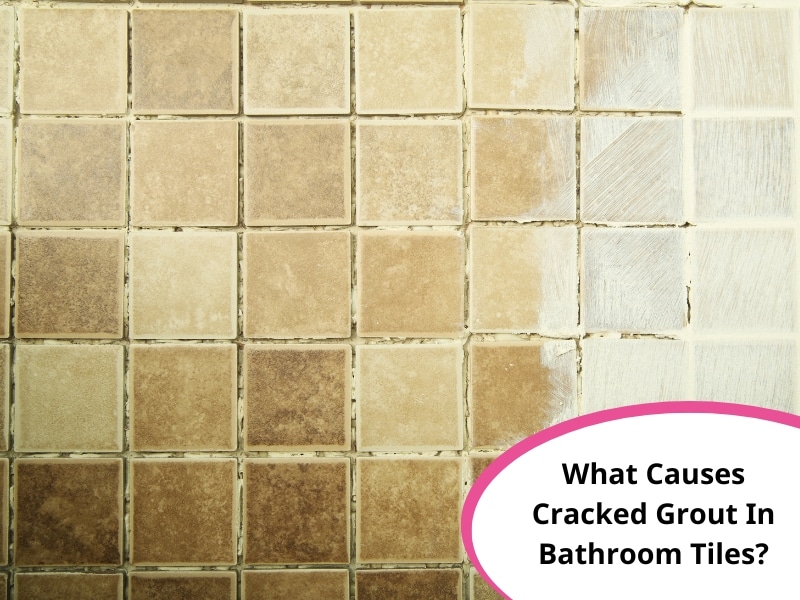Cracked grout in bathroom tiles can be frustrating and unsightly, and if left unaddressed, it can lead to water damage. Understanding what causes grout to crack and how to prevent or fix it can help protect your bathroom from further issues. This guide explores the reasons behind cracked grout and how to keep your bathroom tiles in top condition.
Understanding grout cracking in bathrooms
Grout cracking is a common issue that can happen for several reasons. Grout is the material used to fill the spaces between tiles, and while it is durable, it can be susceptible to damage. Here are some of the main reasons why grout can crack in your bathroom:
- Movement in the foundation or structure: The building or structure can shift or settle over time. This movement causes pressure on the tiles, leading to cracks in the grout. Bathrooms, in particular, are prone to such issues because of changes in humidity and temperature.
- Improper application: If the grout is not applied correctly during tiling, it can lead to solid joints that crack easily. This can happen if the mixture is too watery or dry or if the grout needs to be packed into the gaps properly.
- Water exposure: Bathrooms are naturally wet environments, and constant exposure to water can weaken grout. Suppose the bathroom isn’t correctly sealed or waterproofed. In that case, water can seep into the grout lines, weakening them and causing cracks over time.
- Wear and tear: Everyday bathroom use can lead to grout deterioration. Tiles and grout experience constant foot traffic, cleaning, and exposure to soap, water, and other substances. Over time, this wear and tear will cause grout to crack.
- Temperature fluctuations: Changes in temperature, especially in bathrooms with hot showers, can cause tiles and grout to expand and contract. This movement can put stress on the grout, leading to cracks.
How can you prevent cracked grout in bathroom tiles?
Preventing grout from cracking isn’t always foolproof. Still, there are several steps you can take to reduce the risk and maintain the appearance of your bathroom tiles. Here’s how you can prevent cracked grout in your bathroom:
- Use the right grout: It’s essential to select the suitable grout. Epoxy grout stands out for its durability and resistance to water, making it a preferred choice over cement-based grout. Make sure you pick grout that is suitable for your bathroom’s condition.
- Proper installation: Hiring professionals to install tiles and grout ensures the job is done right. They’ll apply the grout correctly, making sure it’s packed into the joints and doesn’t have air bubbles, which can weaken the material.
- Seal your grout: Grout sealant is essential in preventing water from seeping into grout. After installation, applying a grout sealer will help protect the grout from moisture and reduce the likelihood of cracking.

- Regular maintenance: Regular cleaning and bathroom maintenance can help spot early signs of grout damage. Be sure to clean tiles and grout regularly and avoid using harsh chemicals that could degrade the material over time.
- Ensure proper waterproofing: Proper waterproofing in your bathroom is essential. It ensures water doesn’t seep into the walls or floors, protecting the grout and tiles from damage caused by excess moisture. Furthermore, adhering to waterproofing standards and regulations is crucial to guaranteeing long-lasting and durable bathroom tiles.
When should you call a professional for cracked grout?
Not every grout crack requires a professional, but there are times when calling in experts can save you time and money in the long run. Here’s when you should consider calling a professional:
- Widespread damage: Suppose the grout cracking isn’t isolated to one or two tiles but spreads across a large section of your bathroom. In that case, getting a professional to assess the situation is best. Widespread cracks could indicate a more significant structural issue.
- Water damage: If you notice water pooling around the cracked grout or other signs of water damage, such as mould or mildew, it’s crucial to call a professional immediately. Water damage can cause extensive problems if not addressed promptly.
- Re-grouting or re-tiling: If your grout has deteriorated significantly, you may need to have it re-grouted or replaced.
- DIY attempts didn’t work: Have you tried fixing the cracks yourself, and the problem persists? It might be time to call in the experts.
What solutions are available for repairing cracked grout?
Once your grout has cracked, there are several solutions to repair the damage. Depending on the extent of the cracks, you can opt for simple DIY fixes or more comprehensive professional repairs. Here are some standard solutions:
- Re-grouting: For minor cracks, removing the old grout and applying new grout can fix the problem. Use a grout saw to carefully remove the damaged grout before reapplying.
- Caulking: Using silicone caulk instead of grout can be a better option in areas where tiles meet, such as the corners of your bathroom or where the floor meets the walls. Caulk is flexible and less likely to crack due to movement.
- Grout repair kits: These kits are available at hardware stores to tackle small cracks. These kits allow you to patch up small cracks and seal the grout to prevent future damage.
- Professional repair: For large cracks or persistent issues, calling in a professional service is the best option. They will assess the damage and provide a tailored solution, ensuring the longevity of your bathroom tiles.
How does waterproofing help prevent grout cracking?
Waterproofing is essential in preventing grout from cracking and extending the life of your bathroom tiles. Here’s how it works:
- Stops water infiltration: Waterproofing your bathroom helps prevent water from seeping behind tiles and into the grout. This reduces the chances of grout cracking due to moisture buildup.
- Protects the structure: Proper waterproofing protects the underlying structure of your bathroom from water damage. Less movement can stress the grout when the walls and floors are dry.
- Increases grout durability: Waterproofed surfaces are less prone to temperature changes and moisture absorption, which can weaken grout over time. A well-waterproofed bathroom will have more durable grout that lasts longer.
Why is professional tile grouting important for bathroom longevity?
Professional tile grouting offers several benefits that ensure your bathroom stays in good condition for years. Here’s why it’s worth investing in professional grouting services:

- Proper application: Professionals know how to apply grout correctly, ensuring it’s packed tightly and free from air pockets, which can lead to cracking.
- Use of high-quality materials: Experts use high-quality grout and materials appropriate for your specific bathroom conditions, ensuring a long-lasting result.
- Waterproofing expertise: Professionals can apply waterproofing layers and ensure the tiles and grout are properly sealed, preventing future water damage and cracking.
- Durability and aesthetic appeal: Expert tile grouting solutions ensure durability and enhance the overall appearance of your bathroom. A professional finish will make your tiles look polished and clean for years.
Offering expert tile grouting and shower repair services in Sydney
At Leaking Shower Repairs Australia, we specialise in providing high-quality tile grouting and shower repair services to homeowners, commercial property owners, and strata building managers in Sydney. Whether you’re dealing with minor grout issues or a major renovation project, our experienced team is here to help. We offer same-day service and use top-quality materials to ensure your grout and tiles stay in excellent condition for years. Contact Leaking Shower Repairs Australia today to schedule your repair or renovation service. Let us take care of your bathroom needs!

